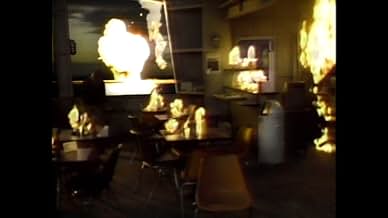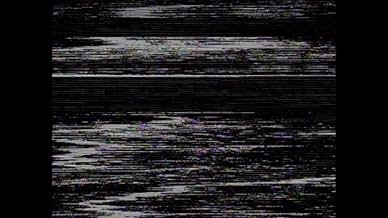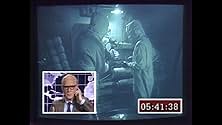Special Bulletin
- Fernsehfilm
- 1983
- 1 Std. 43 Min.
Füge eine Handlung in deiner Sprache hinzuA TV reporter and cameraman are taken hostage on a tugboat while covering a workers strike. The demands of the hostage-takers are to collect all the nuclear detonators in the Charleston, SC ... Alles lesenA TV reporter and cameraman are taken hostage on a tugboat while covering a workers strike. The demands of the hostage-takers are to collect all the nuclear detonators in the Charleston, SC area so they may be detonated at sea. They threaten to detonate a nuclear device of their ... Alles lesenA TV reporter and cameraman are taken hostage on a tugboat while covering a workers strike. The demands of the hostage-takers are to collect all the nuclear detonators in the Charleston, SC area so they may be detonated at sea. They threaten to detonate a nuclear device of their own if their demand isn't met.
- 4 Primetime Emmys gewonnen
- 8 Gewinne & 2 Nominierungen insgesamt
Handlung
WUSSTEST DU SCHON:
- WissenswertesWhen this film was first broadcast, the network superimposed the word "dramatization" on the bottom of the screen every few minutes and ran disclaimers after every commercial break, to remind people it was only a movie. That didn't stop some people in Charleston, S.C. from panicking anyway.
- PatzerThe cameraman would not be able to film the explosion. Either the pyroclastic storm or the electromagnetic pulse would render the camera unusable, and at least erase the magnetic tape in the camera.
- Zitate
Susan Myles: Good evening, this is News Watch. Emergency efforts continue in Charleston, South Carolina, where 3 days ago a nuclear explosion destroyed the heart of the city. Estimated at an yield of 23,000 tons of TNT was seen and heard up to 400 miles away and created a firestorm that is still burning in several areas. Due to early evacuations, the number of dead is estimated at less than 2,000, but at last count there were more than 25,000 injured. Many of those are burnt and have been flown to hospitals around the country for treatment, but altogether the burn care centers in the United States have only 2,400 beds, less than half the number needed for the victims of the Charleston blast. Because onshore winds spreading radiation fallout west of the city, 250,000 more people have been evacuated from outlying areas. In all, half a million are homeless. Scientists estimate that it may be years before the region is safe to reoccupy. Trauma care centers are being set up for survivors, many of whom are physically uninjured but suffering from shock and delayed stress. Authorities are also caring for hundreds of children who are either orphaned or cannot find their parents. Counselors tell of recurring nightmares and shock. One child of 9 apparently committed suicide. After 3 days the shock seems to be just setting in. Early talk of rebuilding have been forgotten in the wake of radiation estimates. Hundreds of thousands of refugees face the prospects of starting new lives elsewhere in an already depressed economy. As for Charleston itself, the city of gardens and narrow streets and beautiful old houses, that city is gone forever. A new city may someday grow there years from now, or it may remain a desert, whichever, the staggering loss of once was can never be eradicated.
- Crazy CreditsOpens with a commercial advertising shows for the fictional RBS network, followed by the title "Special Bulletin" as the commercial is interrupted. There are no opening credits, making this one of the first TV movies ever produced without some sort of opening credits.
- Alternative VersionenThe video release omits the "dramatization" on-screen disclaimer seen throughout the original TV broadcast. The DVD released through the Warner Archive Collection does contain the on-screen disclaimers.
- VerbindungenFeatured in The 35th Annual Primetime Emmy Awards (1983)
"Special Bulletin" was filmed as a "War of the Worlds"-type narrative, consisting exclusively of faux news coverage, and it's pretty damned good. (It won a handful of Emmys.) It's just as frightening today — or maybe more so, given the increased threat of precisely this kind of terrorism from stateless groups.
The acting is mostly good, the directing successfully captures the feel of live news coverage, and the absence of a musical score further lends the movie a sense of realism. The story has a few surprises for us, too — the plot setup is creative and interesting, and much more thought went in the the teleplay than I would have expected. The film asks some difficult questions about the role of the media in affecting the outcome of high-profile crimes like the one depicted. (Would such questions be more or less relevant in the age of camera-phones, uploaded ISIS executions and Facebook Live? I'm not sure.)
I was also quite impressed with some of "Special Bulletin's" thriller elements. (I'd say more, but I will avoid spoilers.)
One thing that detracts from the format's realism is the fact that some of this movie's actors are easily recognizable from other roles in the 80's (although it's fun spotting them as an 80's movie fan).
Most viewers my age, for example, will recognize Ed Flanders and Lane Smith. The utterly sexy female reporter who arrives on location at Charleston Harbor is Roxanne Hart, who later played Brenda in "Highlander" (1986). (She's still quite beautiful, guys, and she's still making movies.) Most jarring of all, however, is a prominent role played by David Clennon, who any fan of horror- science fiction will recognize as Palmer from John Carpenter's 1982 masterpiece, "The Thing." This is still fun, though — he has that same disarrayed hair. Was it his trademark back in the day?
- ericrnolan
- 22. Aug. 2016
- Permalink
Top-Auswahl
Details
Zu dieser Seite beitragen
































